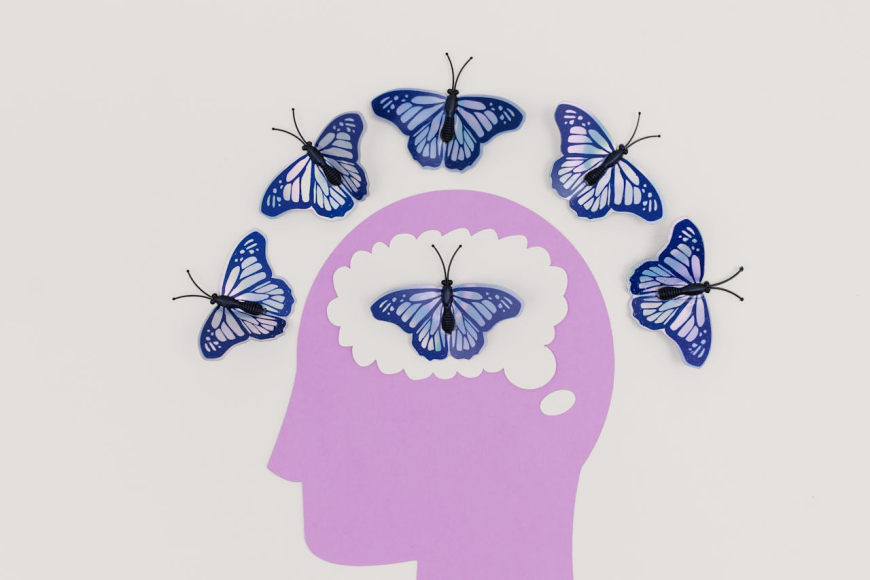Mind Marvels: 5 Fascinating Psychological Wonders That'll Blow Your Mind!
These fascinating psychological facts about the human mind will make you want to discover more about yourself. Here are 5 mind marvels.

-
Introduction
Ever wondered what makes the human mind tick? Dive into the fascinating world of psychology and discover some mind-blowing psychological facts that will leave you questioning the inner workings of your brain.
From the simple act of smiling to the mysterious phenomenon of déjà vu, our minds are filled with quirks and tricks that shape our perceptions and behaviors in unexpected ways.
Join me as I explore five intriguing psychological wonders and uncover the science behind them. Get ready to embark on a journey through the depths of human cognition and unlock the secrets of the mind!
-
The power of smiling
Ever notice how just smiling can sometimes make you feel better? It's not just a coincidence. When you crack a grin, even if you're not feeling particularly happy, your brain releases neurotransmitters like endorphins, dopamine, and serotonin. These magical chemicals are the culprits behind those warm, fuzzy feelings of happiness and well-being.
The facial feedback hypothesis suggests that the physical act of smiling triggers the brain to release these feel-good neurotransmitters, which can instantly boost your mood (Strack, Martin, and Stepper 1988) (Ekman, Davidson, and Friesen 1990).
Additionally, smiling can reduce levels of stress hormones like cortisol, further contributing to a sense of relaxation and happiness.
-
Serial Position Effect
Here's a fun trick: if you're trying to make something stick in your memory, put it at the beginning or end of a list. Your brain loves playing favorites and tends to remember the first and last items best. It's like they get VIP access to your memory bank. This is called the serial position effect.
This phenomenon occurs due to differences in how information is processed and stored in memory. Items at the beginning of a list receive more attention and are more likely to be encoded into long-term memory (Atkinson and Shiffrin 1968).
Similarly, items at the end of a list are still in short-term memory and are easily acccessible for recall (Glanzer and Cunitz 1966).
-
Baader-Meinhof Phenomenon
Ever heard of the Baader-Meinhof Phenomenon? It's that mind-boggling experience where you learn about something new, like a funky word or a rare car model, and suddenly you start seeing it everywhere. It's like the universe decided to play a game of hide-and-seek with your brain.
"The Baader-Meinhof Phenomenon, also known as frequency illusion, occurs when you encounter something new and then start noticing it everywhere shortly afterward" (MAQS 2024).
This phenomenon occurs due to selective attention and confirmation bias. Once something has been brought to your attention, your brain becomes primed to notice it again, leading to the perception that it is occurring more frequently. This is compounded by the fact that your brain seeks out information that confirms its existing beliefs or knowledge (Schwarz et al. 1991).
-
Déjà vu
Déjà vu, anyone? You know that eerie feeling like you've been there, done that, even though you know it's your first time? Yup, that's déjà vu!
Déjà vu is that spine-tingling sensation of having been in a situation before, even though you know it’s your first time experiencing it
While the exact cause of déjà vu is not fully understood, several theories suggest that it may result from a mismatch between current sensory input and past memories, leading to a feeling of familiarity (O'Connor and Moulin 2010).
Other theories propose that déjà vu occurs when a new experience triggers memories from similar past experiences, creating a sense of repetition.
-
Zeigarnik Effect
Imagine you're engrossed in a captivating novel, eagerly flipping through the pages to find out what happens next. Suddenly, you're interrupted by a phone call, forcing you to set the book aside and attend to the conversation.
Despite your best efforts to focus on the call, your mind keeps drifting back to the unfinished chapter, replaying scenes and wondering about the fate of the characters.
Even after the call ends, you find it difficult to shake off the lingering thoughts of the unresolved storyline, feeling a strong urge to return to the book and find closure. This persistent fixation on the unfinished task, even amid other activities, exemplifies the Zeigarnik Effect in action.
This phenomenon occurs because uncompleted tasks create a state of tension or cognitive dissonance, which motivates the brain to maintain the task in working memory until it is completed. The interruption of the task prevents closure, leading to enhanced memory retention compared to completed tasks (Masicampo and Baumeister 2011).
-
Final thoughts
So, there you have it—some mind-bending insights into the wild and wonderful world of psychology! From the simple act of flashing a smile to the mysterious moments of déjà vu, these quirks of the mind add a splash of intrigue to our everyday experiences.
But beyond just being fascinating, understanding these psychological wonders can help us navigate life a little better. Whether it's using the power of positive vibes to lift our spirits, mastering memory tricks to ace that test, or recognizing when our brain's playing tricks on us, these nuggets of knowledge give us a glimpse into the inner workings of our minds.
So, the next time you find yourself in a déjà vu moment or blanking out on an answer, take a beat to marvel at the wonder of your brain. After all, it's these quirks and oddities that make us beautifully human.
Keep exploring, keep learning, and above all, keep embracing the fascinating world of psychology—it's one heck of a ride!
-
References
Atkinson, Richard C., and Richard M. Shiffrin. 1968. "Human Memory: A Proposed System and Its Control Processes." In The Psychology of Learning and Motivation: Advances in Research and Theory, edited by Kenneth W. Spence and Janet T. Spence, 2:89-195. Academic Press. doi:10.1016/S0079-7421(08)60422-3.
Ekman, Paul, Richard J. Davidson, and Wallace V. Friesen. 1990. "The Duchenne Smile: Emotional Expression and Brain Physiology II." Journal of Personality and Social Psychology 58 (2): 342-353. doi:10.1037/0022-3514.58.2.342.
Glanzer, Murray, and Anita R. Cunitz. 1966. "Two Storage Mechanisms in Free Recall." Journal of Verbal Learning and Verbal Behavior 5 (4): 351-360.
MAQS. 2024. "Facts That Are Absolutely Mind Boggling." Accessed June 4, 2024. https://www.mqsinfo.com/2024/05/facts-that-are-absolutely-mind-boggling.html.
Masicampo, E. J., and Roy F. Baumeister. 2011. "Unfulfilled Goals Interfere with Tasks that Require Executive Functions." Journal of Experimental Social Psychology 47 (2): 300-311. doi:10.1016/j.jesp.2010.10.01.
O'Connor, Alan R., and Chris J. A. Moulin. 2010. "Recognition without Identification, Erroneous Familiarity, and Déjà Vu." Current Directions in Psychological Science 19 (5): 321-325. doi:10.1177/0963721410388800.
Schwarz, Norbert, Herbert Bless, Fritz Strack, Gisela Klumpp, Heike Rittenauer-Schatka, and Alexander Simons. 1991. "Ease of Retrieval as Information: Another Look at the Availability Heuristic." Journal of Personality and Social Psychology 61 (2): 195-202. doi:10.1037/0022-3514.61.2.195.
Strack, Fritz, Leonard L. Martin, and Sabine Stepper. 1988. "Inhibiting and Facilitating Conditions of the Human Smile: A Nonobtrusive Test of the Facial Feedback Hypothesis." Journal of Personality and Social Psychology 54 (5): 768-777.
What's Your Reaction?



























